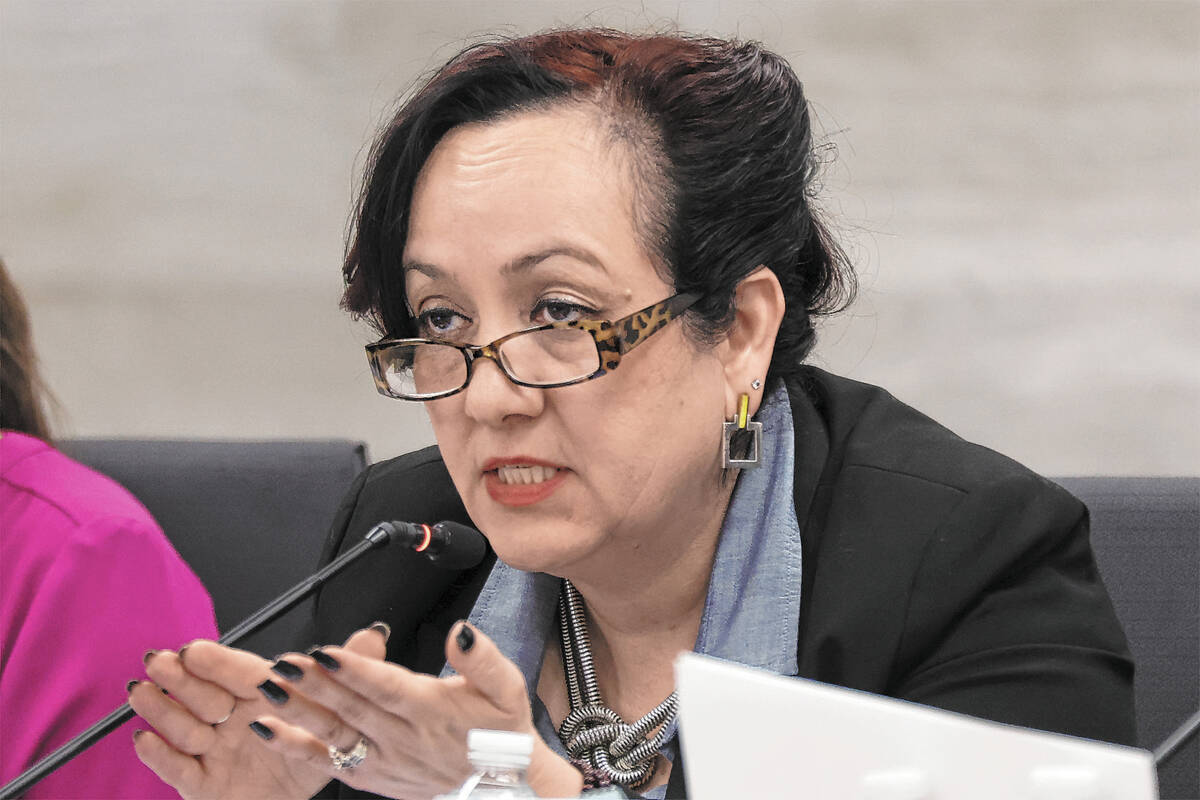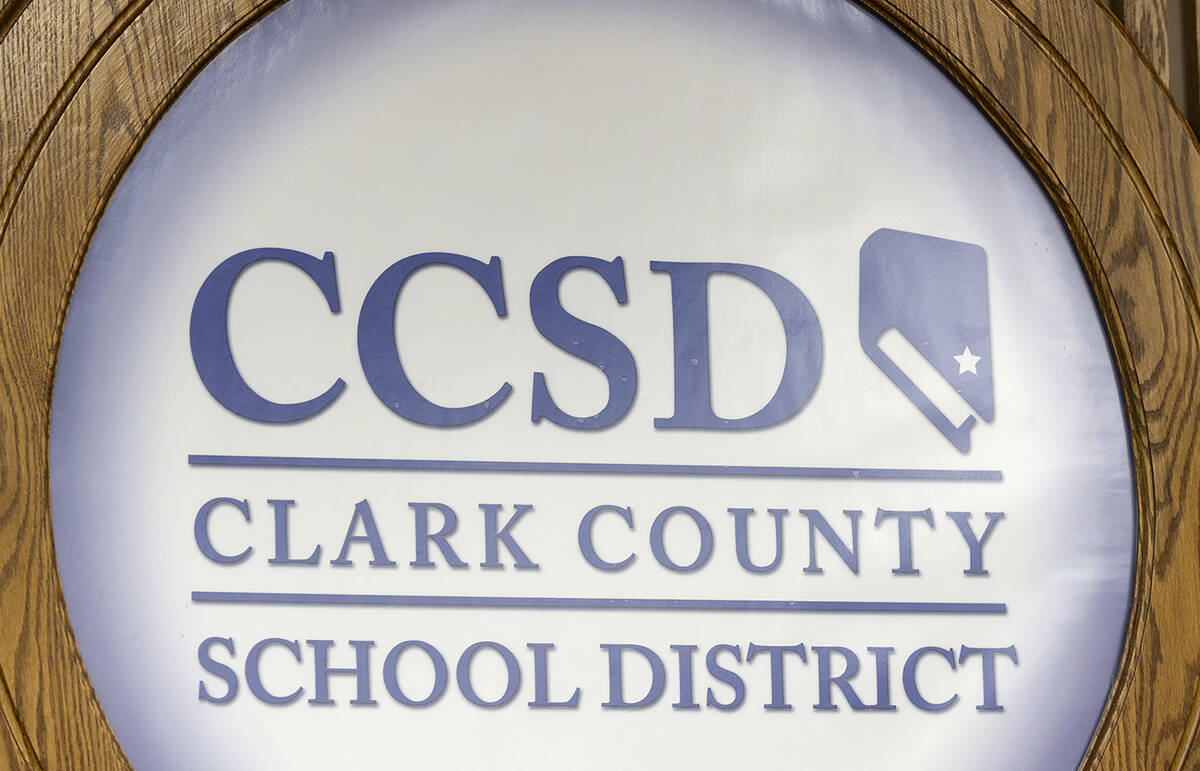CCSD lowers potential budget deficit estimate
The Clark County School District has reduced the projection of its potential budget deficit from $20 million to just under $11 million, Interim Superintendent Brenda Larsen-Mitchell told the Clark County School Board on Thursday.
“We knew in spring due to salary increases, which our employees deserve, we were gonna be tight,” Larsen-Mitchell said.
She said the team had swings afterwards and could not determine whether there would be a deficit, which led the district to delay communicating with principals. The district blamed the central budget deficit on cybersecurity and litigation costs. Larsen-Mitchell said the district had allotted $30 million for litigation and went $23 million over. The district also spent $14.9 million on cybersecurity costs after last October’s data breach.
$10.9M projected budget deficit
The projected budget deficit has changed in the past few weeks, and could continue to change. The district had projected a $20 million central budget deficit two weeks ago, $12 million was on the agenda for Thursday’s board meeting and Larsen-Mitchell first announced a $10.9 million figure at the meeting itself. Interim Financial Officer Diane Bartholomew said that the budget was still being developed and the number could change.
In a presentation that went before trustees Thursday night, the district clarified that the issue of the school budget adjustments was separate from the potential budget deficit and that no school budgets were affected by the potential central budget deficit.
Schools were, however, affected by the school budget adjustments, which had initial errors, according to the presentation. On Sept. 15, principals determined that inaccurate data had been used for At-Risk funding for schools, which it recalculated the next day. On Sept. 17, the payroll data for positions with salaries did not include the 8 percent increase in pay for licensed professionals, which it also updated later.
As a result, operating costs for many schools were far higher than anticipated. Upon learning the news, principals around the district re-evaluated their strategic budget plans — cutting staff, programming and supply funding.
At Thursday’s meeting, Trustee Ramona Esparza-Stoffregan asked principals who were presenting to the board about student success to share any issues they had had with their budgets.
Several principals shared the impact to their school, with Principal Kathi Rozek reporting that Lee Antonello Elementary School had a deficit of $587,000.
The presentation also provided a history of employees’ surplus history, the term used for unassigned employees. Numbers were higher this year than last year, with 37 licensed professionals, 45 support professionals and five administrators being surplused. But in the years before that, numbers were generally higher, specifically among the amount of licensed educators, according to the presentation.
The district said that there had not been any cuts in the central office.
Solutions
In a 3-3 tie vote, the board did not approve Larsen-Mitchell’s recommendation of a $50,000 audit from the Council of the Great City Schools, an outside group that has conducted reviews of other large school districts in the past. Gov. Joe Lombardo has already called on the Legislature to expand an audit of CCSD in the wake of the budget deficit.
“You’d just be insulting your staff,” said Vicki Kreidel, president of the Nevada State Education Association of Southern Nevada said.
Marie Neisess of the Clark County Education Association asked whether there was no one qualified within CCSD to examine it.
“This is a crisis,” she said.
Esparza-Stoffregan noted that the cost is the same as the salary for a support position.
The district also laid out other solutions. Short-term solutions include school support and meetings with principals, as well as using money from its unassigned ending fund balance. District Policy 3110 requires the district to maintain an ending fund balance of 2 percent of total General Fund revenue, and the district plans to stay above 4 percent. According to the presentation from last spring, that amount hovers around $160 million.
In the long term, the district said it will “increase broad understanding and visibility into the allocation of dollars across schools.”
“There has been an insufficient level of checks and balances,” Chief Strategy Officer Kellie Kowal-Paul said, noting that the district was working to improve in the future.
The agenda item came more than three weeks after news broke about the potential deficit.
Several trustees had requested the budget be put on the agenda for the last meeting on Sept. 26, though board President Evelyn Garcia Morales declined.
“The main thrust of this agenda request was for it to be done in a timely manner,” Trustee Linda Cavazos said.
At Thursday’s meeting, the board voted 4-2 to add the issue to a future meeting as well — with Trustee Lola Brooks and Garcia Morales voting against it.
“Even though there’s one today,” Garcia Morales said after the vote. “We are learning.”
Contact Katie Futterman at kfutterman@reviewjournal.com.























